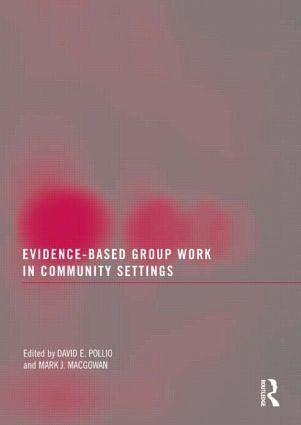
Evidence-Based Group Work in Community Settings
Versandkostenfrei!
Versandfertig in 1-2 Wochen
54,99 €
inkl. MwSt.
Weitere Ausgaben:

PAYBACK Punkte
27 °P sammeln!
This book evaluates group work models developed through collaborations between researchers and community agencies, and discusses issues around instruction and dissemination of evidence-based group work in practice settings. This book was published as a special issue of Social Work with Groups.














